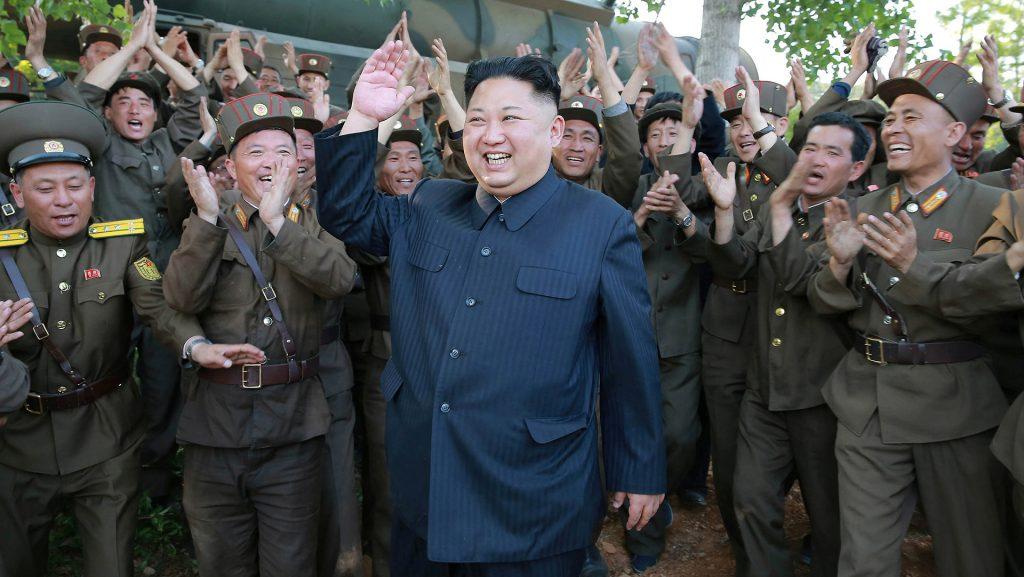By Sarah Watson
sarah-e-watson@uiowa.edu
When Sungbin Hong was younger, she went to the 2.5-mile-wide demilitarized zone at the border between North Korea and South Korea and saw North Koreans farming and walking around town.
It was the first and the last time she saw their lives, she said.
Hong, a South Korean student at the University of Iowa, is one of several students who aren’t convinced a war is in the near future or that South Korea is in any immediate danger, despite escalating tensions between the U.S. and North Korea.
“North Korea has been an annoying neighbor for over 60 years,” said Yooneui Kim, a UI graduate student in International Relations, noting that South Koreans have seen threats and tensions for a long time.
North Korea launched its most capable ICBM yet in the early morning of Nov. 29 after a two-month break in public military tests. Although it is not able to hold a nuclear warhead, the ICBM is speculated to be able to reach any city in the U.S.
Pyongyang, the capital of North Korea, is a mere 120 miles from Seoul, South Korea’s capital. Yet UI Korean student Kyungho Leem said Americans were more immediately concerned about the conflict than she was.
“A lot of my American students and friends are worried about what might happen in my country, but that is not the same reaction from my home country,” Leem said. “That kind of tension will always be with us, it is so familiar. Somehow that makes us understand the conflict in a different way.”
Leem, a UI graduate student in the History Department, said she remembered more public concern throughout the 1990s during and after Kim Jung-un’s father, Kim Jong-il, transitioned to power and several skirmishes broke out.
“When I was young, the tension was such a dramatic moment for us that even the shelves of the grocery stores were empty, because everyone bought groceries to prepare for the war,” Leem said.
RELATED: Former National Security Advisor talks North Korean Diplomacy
She said she hadn’t seen or heard the same level of public concern since the 2000s.
Jiyeon Kang, a UI associate professor of communication studies who specializes in South Korean youth culture, said there is often a gap in opinion about North Korea between millennials and members of an older generation who witnessed the Korean War and the economic recovery from it.
“[The older generation] experienced war, and therefore, they think war is a possibility,” Kang said.
She said that on the other hand, millennials have grown up in a time when North Korea has threatened so much they almost become desensitized.
“Even though these tensions are bigger for the U.S., for South Koreans, it is not that special or out of the ordinary,” Kang said.
She also said because millennials grew up when South Korea’s economy had far surpassed North Korea’s, many do not see North Korea as an equal military threat but more as a country in need of humanitarian aid.
UI freshman Grace Kim said she taught several North Korean children in a small program at her school and heard stories of refugees escaping North Korea’s extreme poverty.
“You kind of nod your like ‘Wow, that’s sad,’ but we don’t have any negative feelings toward them,” Kim said.
Sungjea Lee, a former president of the Korean UI Student Association, served as a veteran of the Republic of Korea Army from 2014-15. He said he was certain South Korea would win a war against the North and that a war would cause unnecessary damage.
“… People of South Korea are used to this kind of threat from North Korea, Lee wrote in an email to the DI. “So it seems that they do not care about what Kim Jung-un said or the test-launching missiles or nuclear weapons.”



